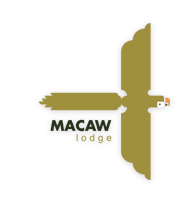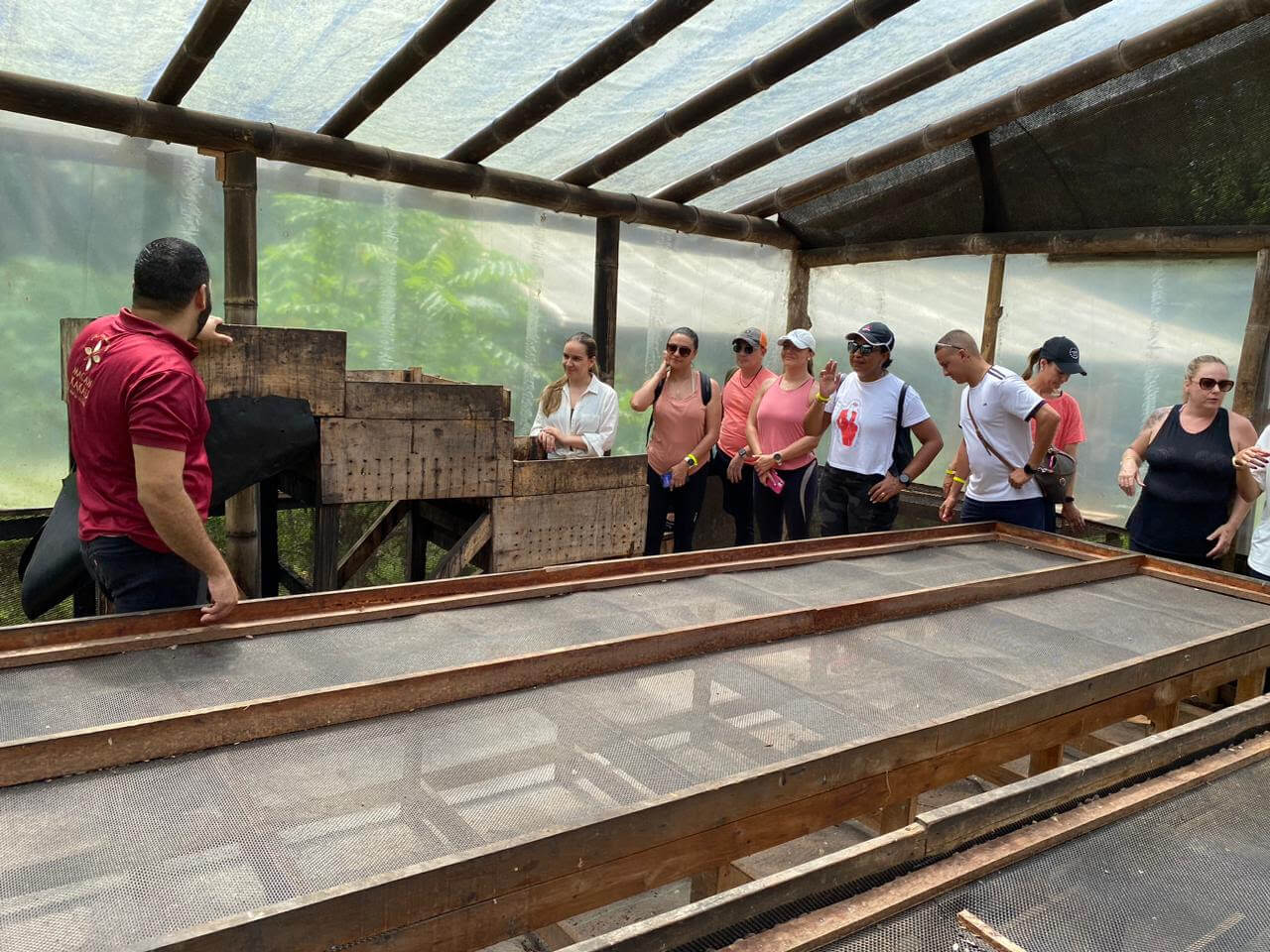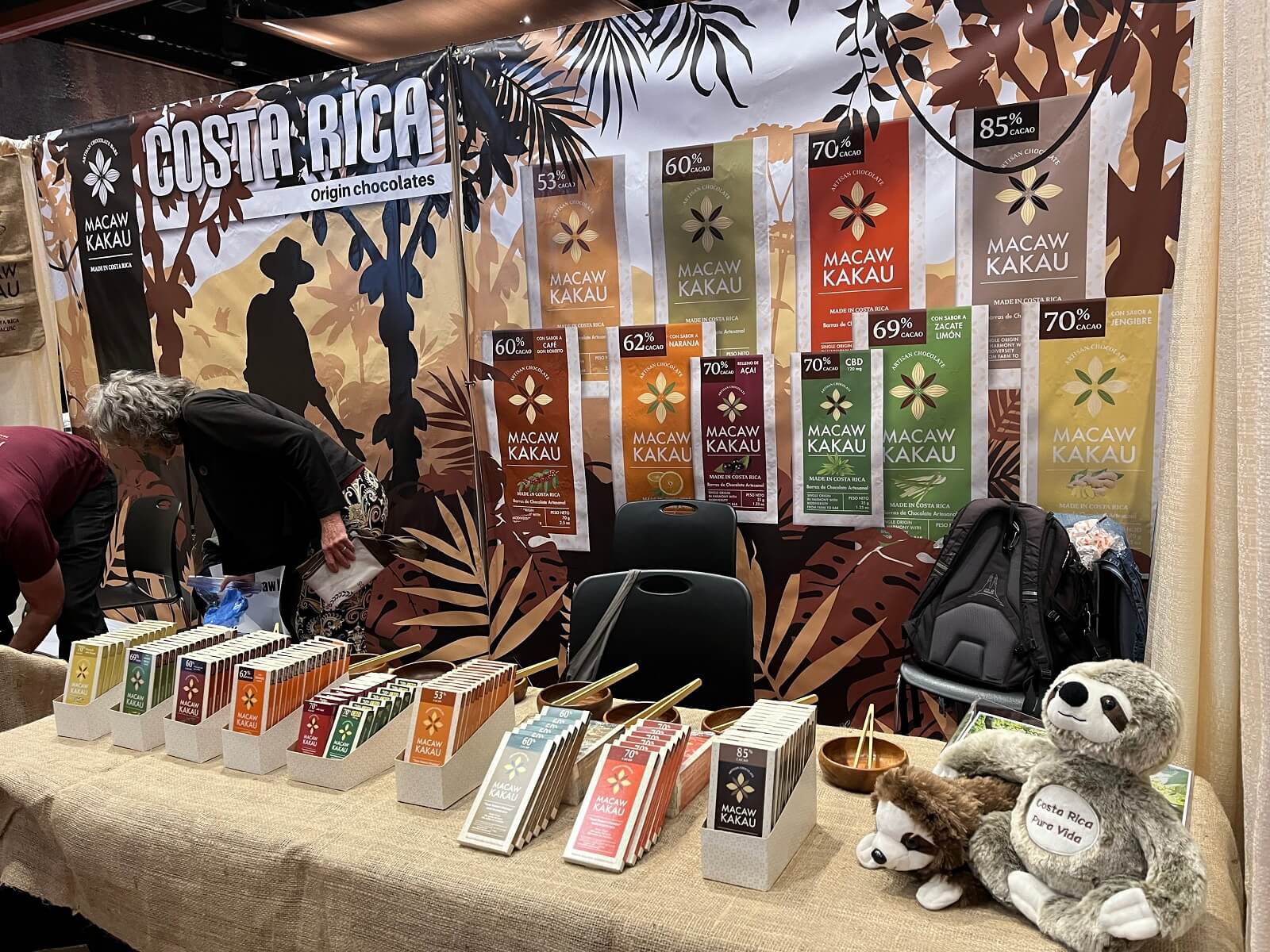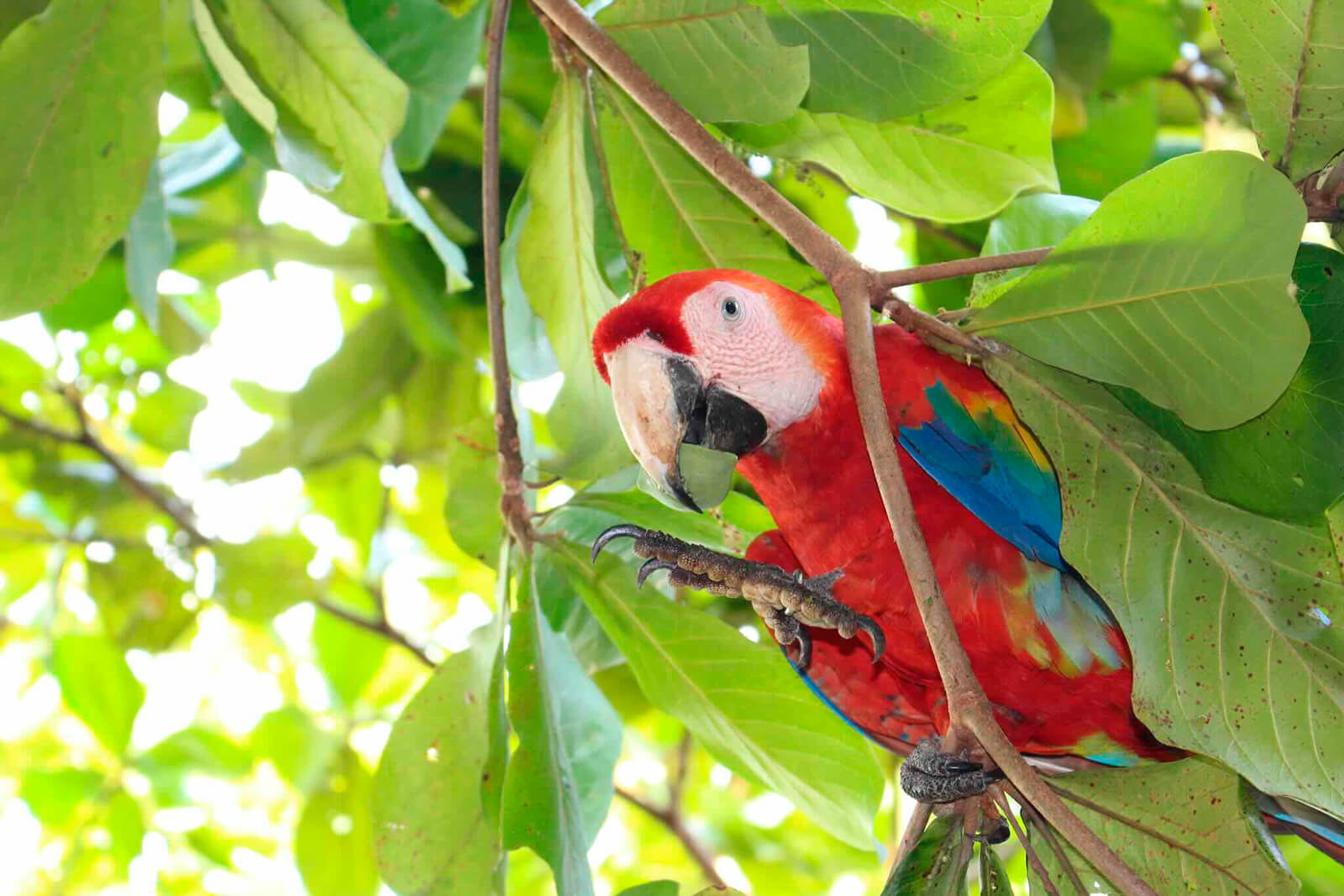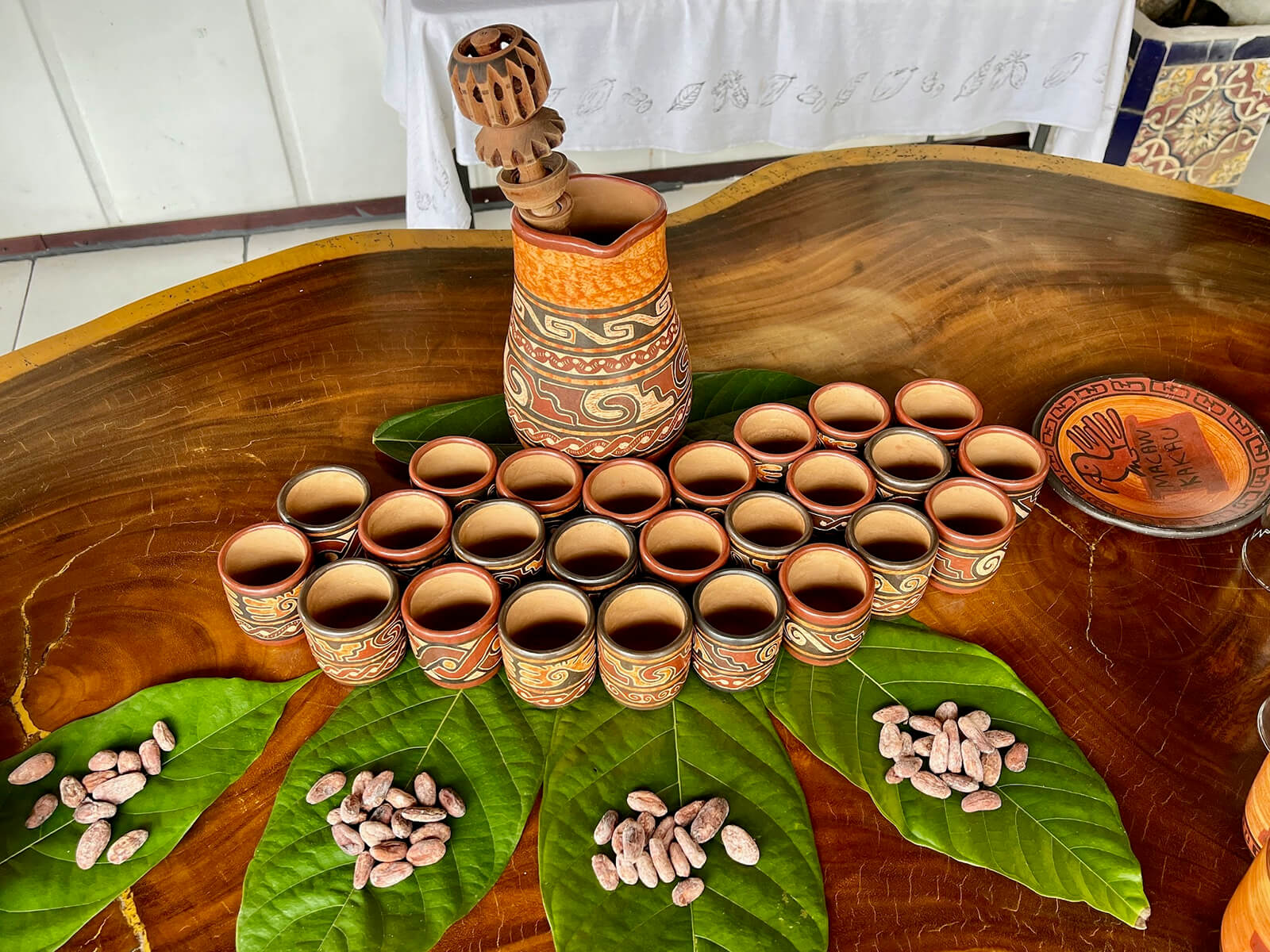Macaw Lodge again had the pleasure of hosting a group of 6 participants for a 5 day Earth-to-Bar chocolate making workshop.
Continue readingListening to the Forest, Protecting Its Future
At Macaw Lodge, conservation is not just about what we see—it’s also about what we hear. The forest is alive with stories, carried through the songs of birds
Continue readingMacaw Lodge and Macaw Kakau and the incomparable Cacao Tour and good news a Coffee Tour is opening 2025
On Last June, I was lucky enough to return to Costa Rica and to Macaw Lodge to lead a group of 14 Biology and Zoology students and 5 academic staff.
Continue readingMacau Kakau Makes History at the North West Chocolate Festival!
Makau Kakau continues to make history, connecting with friends and collaborators who share our passion for chocolate and conservation. This time, we highlight those who joined us in Seattle.
Continue readingAugust 2024 University of Manchester Returns to Macaw Lodge by Professor Amanda Bamford
On Last June, I was lucky enough to return to Costa Rica and to Macaw Lodge to lead a group of 14 Biology and Zoology students and 5 academic staff from University of Manchester, UK.
Continue readingMacaw Lodge: The ultimate Birding Hotspot ! Donate to Preserve Nature, and Discover Our Future Workshops !
Macaw Lodge stands out as an exceptional destination for birders, offering a level of biodiversity and a variety of habitats unrivaled in Central America.
Continue readingField day, our next Coffee Tour and up coming events
The field day celebrated at Macaw Lodge through the extension agency Agropecuaria Carara of the Ministry of Agriculture and Livestock.
Continue readingConnecting National Parks, yoga and Cacao Tour
Macaw Kakau had the honor of participating for the second consecutive year in the prestigious Northwest Chocolate Festival, representing Costa Rica alongside two other prominent Costa Rican companies.
Continue reading